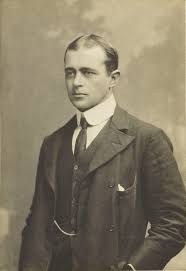Module 6
Lesson 2
Student’s Book pages 62–63
Across continents
Before reading

The key words
|
The word / phrase |
The meaning |
The derivation |
|
blizzard |
a severe snow storm with strong winds |
Noun |
|
condition |
the particular state that something or someone is in |
Noun |
|
expedition |
an organized journey for a particular purpose |
Noun |
|
explorer |
someone who travels to places where no one has ever been in order to find out what is there |
Noun |
|
exposure |
the fact of experiencing something or being affected by it because of being in a particular situation or place |
Noun |
|
frostbite |
injury to someone caused by severe cold, usually to their toes, fingers, ears, or nose, that causes permanent loss of tissue |
Noun |
|
pioneer |
a person who is one of the first people to do something |
Noun |
|
tragic |
very sad, often involving death and suffering |
Adjective |
While reading
For the past century, people have admired Robert Falcon Scott – a pioneer who attempted to be the first person to the South Pole.
In 1910, Scott led his second expedition to the Antarctic. He and his crew arrived in January 1911 and set up camp in McMurdo Sound. As they travelled south, they met awful conditions. Their sledges and ponies could not cope. Even the dogs had to turn back. Eventually there were just five men left – Scott, Wilson, Oates, Bowers and Evans. They battled on, but when they reached the South Pole on 17 January, 1912, they found a small tent with a Norwegian flag. The Norwegian explorer Roald Amundsen reached the pole a month before Scott.
Like all people who have been beaten, the men were extremely disappointed when they started their return journey. They struggled through blizzards. Evans died in February and then Oates, who had severe frostbite, walked out into the freezing conditions on his thirty-second birthday. He didn’t return. The remaining three men finally died of starvation and exposure on 29 March, 1912. Tragically, they were only twenty kilometres from a food supply. Eight months later, a search party found their tent and their diaries. Their notebooks, letters and diaries described the tragic events.
Since then, Scott’s bravery has been greatly admired by the British people, and he has become a national hero.
The text talks about:
-Scott’s who attempted to be the first person to the South Pole.
-Scott’s race conditions to the South Pole.
-Scott’s tragic story.
- Scott’s bravery has been greatly admired by the British people.
After reading
-What did the find when they reached the South Pole on 17 January, 1912?
They found a small tent with a Norwegian flag. The Norwegian explorer Roald Amundsen reached the pole a month before Scott.